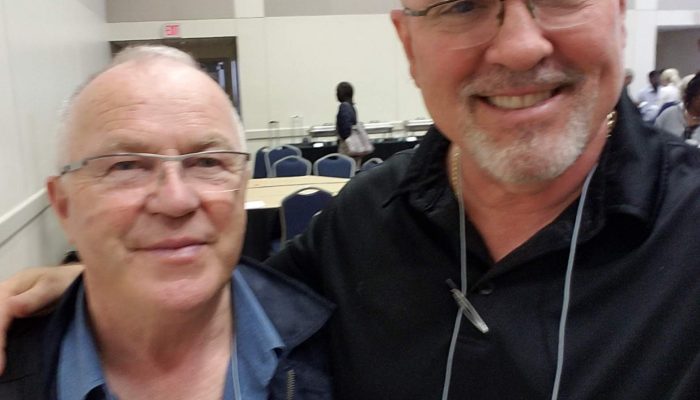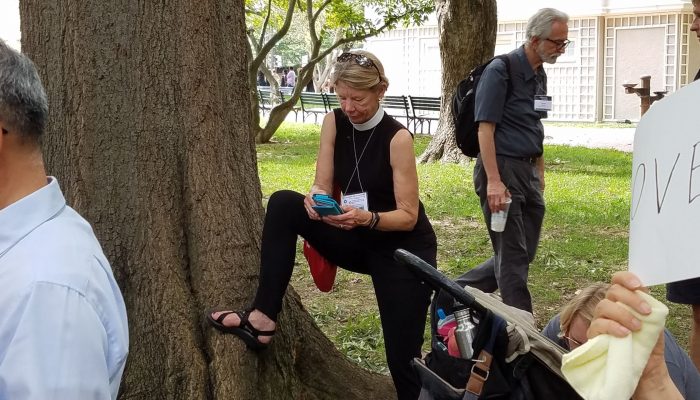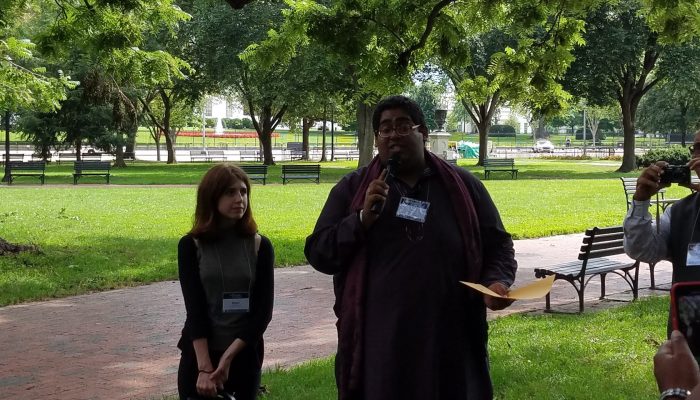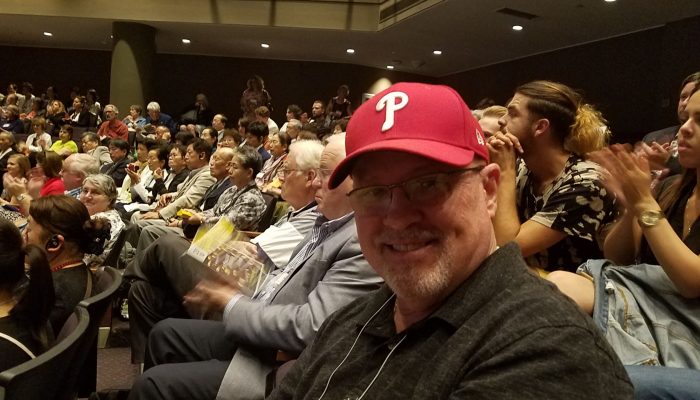Re-imagining Interfaith Dialogue
Fr. Carl Chudy, SX
On a steamy afternoon in our nation’s capital an unlikely group of people gathered at the Marvin Center of George Washington University from far flung places like Japan, a number of countries of Europe, Africa, Latin America. Lay Buddhists, Christians of various denominations, secular humanists, Muslims, Sikhs, Hindus, Jews from Israel and others came together to “re-imagine” the healing power of interfaith dialogue in a world wreathing from moral, cultural, and religious divides. We were 22 faith traditions coming together.
In the three days we worked together around five different tracks:
- Cultivating Inclusive Communities in the Face of Religious Discrimination
- Community Organizing: Initiating and Sustaining Social Change Movements
- Staying “Woke”: Recognizing Privilege, Challenging Systemic Oppression
- Interfaith Organizing in a Changing Spiritual Landscape
- Making A Movement: Building Skills to Bring Interfaith to the Next Level
The Catholic commitment in this emphasized in Pope Francis’ Joy of the Gospel when he states: “Today, when the networks and means of human communication have made unprecedented advances, we sense the challenge of finding and sharing a “mystique” of living together, of mingling and encounter, of embracing and supporting one another, of stepping into this flood tide which, while chaotic, can become a genuine experience of fraternity, a caravan of solidarity, a sacred pilgrimage. Greater possibilities for communication thus turn into greater possibilities for encounter and solidarity for everyone.” (Joy of the Gospel, 87)
Some of the extraordinary speakers who helped to facilitate conversations among ourselves, connecting and networking for new possibilities were Rabbi David Saperstein (@RabbiSaperstein) who was designated by Newsweek Magazine as the most influential rabbi in America and by the Washington Post as the “quintessential religious lobbyist on Capitol Hill,” David Saperstein, for decades, directed the Religious Action Center of Reform Judaism, representing the Reform Jewish Movement, the largest segment of American Jewry, to Congress and the Administration.
Dr. Mohamed Elsanousi (@melsanousi1) is the Director of the Secretariat of the Network for Religious and Traditional Peacemakers (NRTP), a global network initiated by United Nations Mediation Support Unit, UN Alliance of Civilizations, Organization of Islamic Cooperation, Religions for Peace, KAICIID Dialogue Center and Finn Church Aid. He heads the NRTP’s Washington D.C. Office.
Satjeet Kaur (@sikh_coalition) is the newest Executive Director of the Sikh Coalition, the largest Sikh civil rights organization in the United States. Prior to becoming Executive Director, Satjeet spent eight years working for the Sikh Coalition in nearly every core facet of the organization’s work.
Rev. Jennifer Bailey (@faithmattersnet) is the Founder and Executive Director of The Faith Matters Network, which centers the voices of leaders who have traditionally been pushed to the margins of religious narratives. Named one of 15 Faith Leaders to Watch by the Center for American Progress, Rev. Jennifer Bailey is an ordained minister, public theologian, and emerging national leader in the multifaith movement for justice. Her organization is a new interfaith community equipping faith leaders to challenge structural inequality in their communities.
Re-Imagining Human Solidarity through Theism and Atheism
Human solidarity, despite our many differences is key to what it means to be human. All of our faith traditions, as well as secular worldviews have at their heart a radical inclusivism that builds bridges between all peoples, even though many interpretations and secular blogs may also highlight our incompatibility as we look at each other through our straw man caricatures. Dialogue pulls us together in inextricable ways. In the bonds and conversations of this conference, I recall the words of Pope Francis:
Interreligious dialogue is a necessary condition for peace in the world, and so it is a duty for Christians as well as other religious communities. This dialogue is in first place a conversation about human existence or simply, as the bishops of India have put it, a matter of “being open to them, sharing their joys and sorrows”. In this way we learn to accept others and their different ways of living, thinking and speaking. We can then join one another in taking up the duty of serving justice and peace, which should become a basic principle of all our exchanges. A dialogue which seeks social peace and justice is in itself, beyond all merely practical considerations, an ethical commitment which brings about a new social situation. (Joy of the Gospel, 250)
Re-imagining this solidarity also begs the question, “Who is not at the table of dialogue that should be?” Although not threaded through the programming of the conference, attention was paid to not only religious voices, but secular voices as well. Kathleen Green, representing one of the sponsors of the Re-imagining Interfaith conference, is a secular humanist, clergy of the Unitarian Universalist Association, and a passionate supporter of including secular voices in interfaith dialogue and action. She recently wrote in the Interfaith Observer:
“Social justice is not something most people associate with Humanism, yet social issues have always been a part of Humanist philosophy. The call to champion flourishing human rights for all is a call for justice, regardless of religious affiliation. This shared value of justice is what can bring Humanists and religious adherents together. Our deepest values are revealed by how we actually live our lives, providing insight and guiding our decision-making.”
Interfaith Observer, June 15, 2018

Kathleen and I have worked together on a number of opportunities, gathering theists and atheists to explore our common ground, appreciate our differences, and work together for healing our communities bereft with divisions and injustice. In November 2018 we will be working together, along with Miranda Hovemeyer, also a secular humanist, at the upcoming Parliament of World’s Religions.
The future of interfaith dialogue and action in the United States will greatly depend on the ability of our traditional religious institutions to reach out to the growing number of unaffiliated and disaffiliated adults who have left religion behind. A recent Pew Study puts that number at about a quarter of all adults in the United States. More than half of adults in this country believe that one can be good without believing in God. In our troubling times, uniting secular and religious voices is more important than ever.
The Liberal/Conservative Divide in Religion
Another fascinating figure in the conference was Kevin Singer. He is co-founder of Neighborly Faith, an organization that helps evangelical Christians to be good neighbors to people of other faiths. He is also a PhD student at North Carolina State University studying higher education, where he works with Interfaith Youth Core’s IDEALS project, a national study of religious diversity in higher education.
The Catholic Church recently has been very critical of certain circles of evangelical Christianity by way of the Vatican sanctioned journal, La Civilta Catolica. The first was in the article, Evangelical Fundamentalism & Catholic Integralism: A Surprising Ecumenism. The second article is entitled, The Prosperity Gospel: Dangerous and Different. Yet, Christianity in the United States is both blessed and burdened by its utter diversity, both connecting with each other in ecumenism, and divided between left and right boundaries, bleeding into US politics.
If anything, the diversity and division within Christianity and other faiths speaks of the the diversity and divisions in the interfaith movement itself, and a challenge to reach out to each other in dialogue and collaboration becomes all the more important. Interfaith dialogue is a living tradition that is grounded in its cultural contexts, living and breathing, and learning more deeply what human solidarity means.





